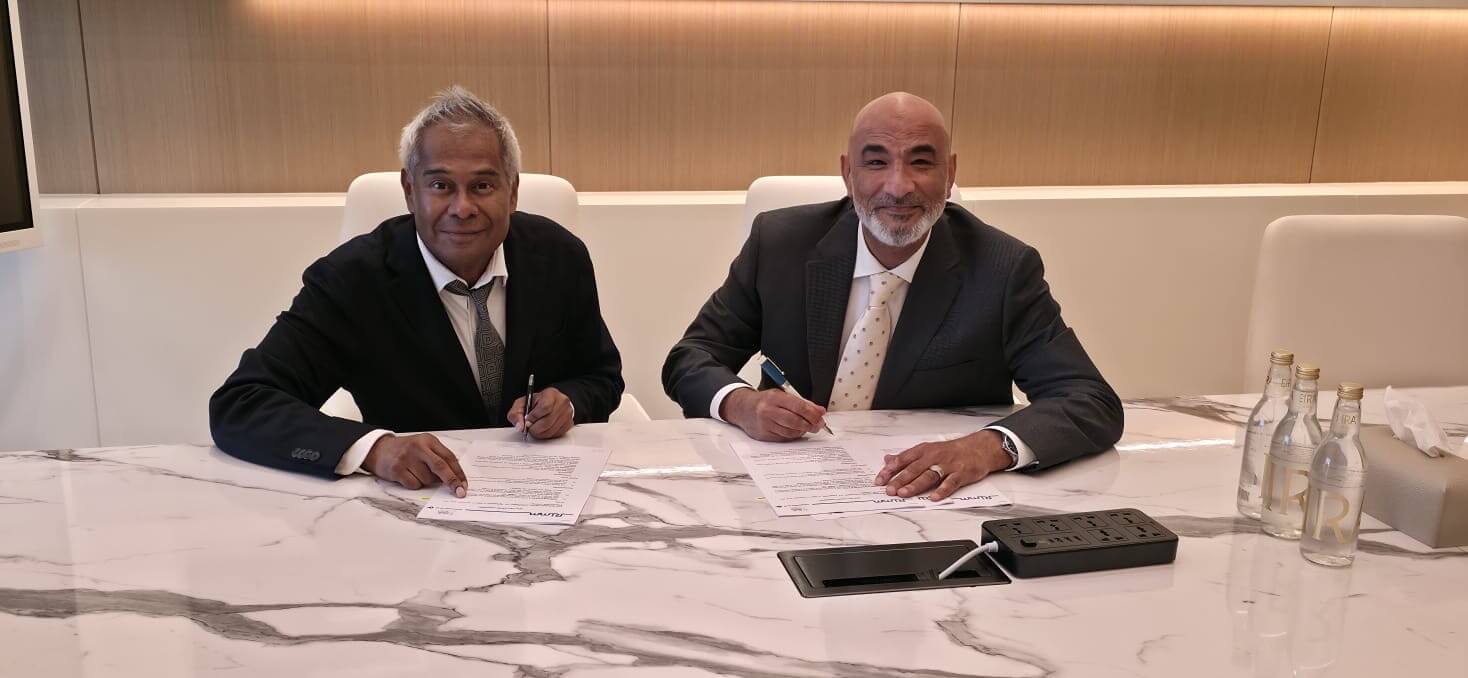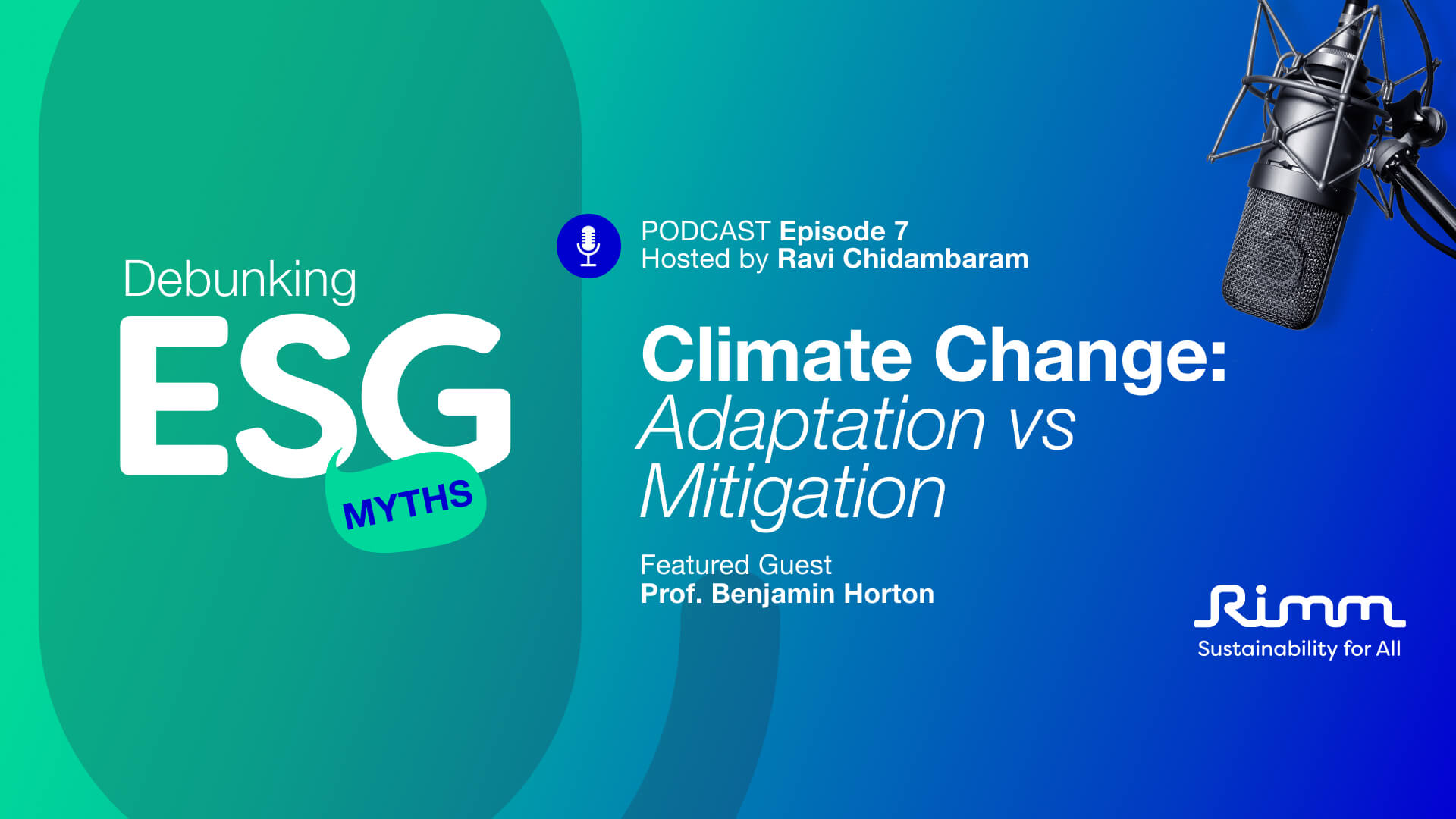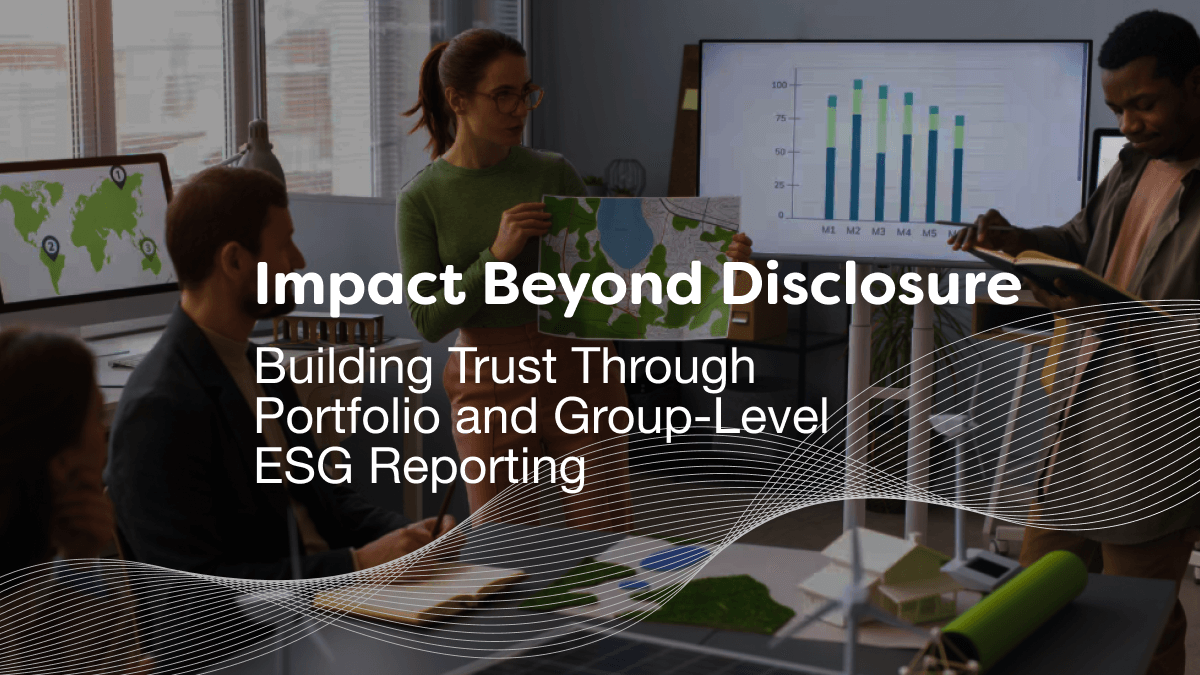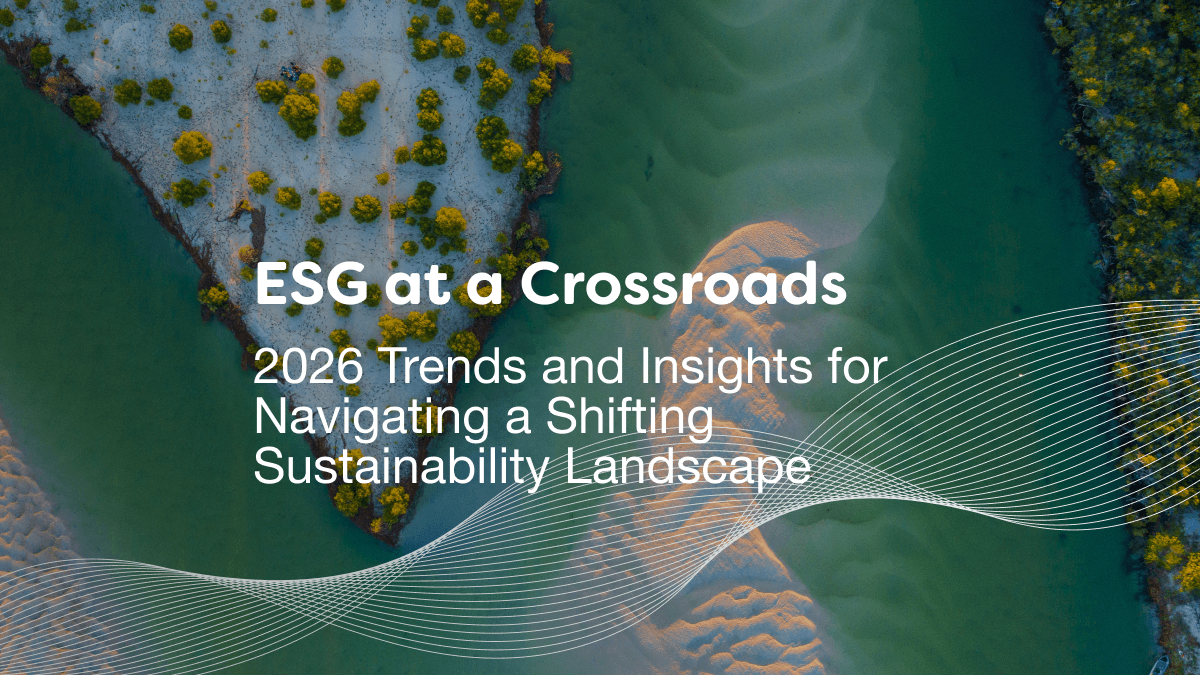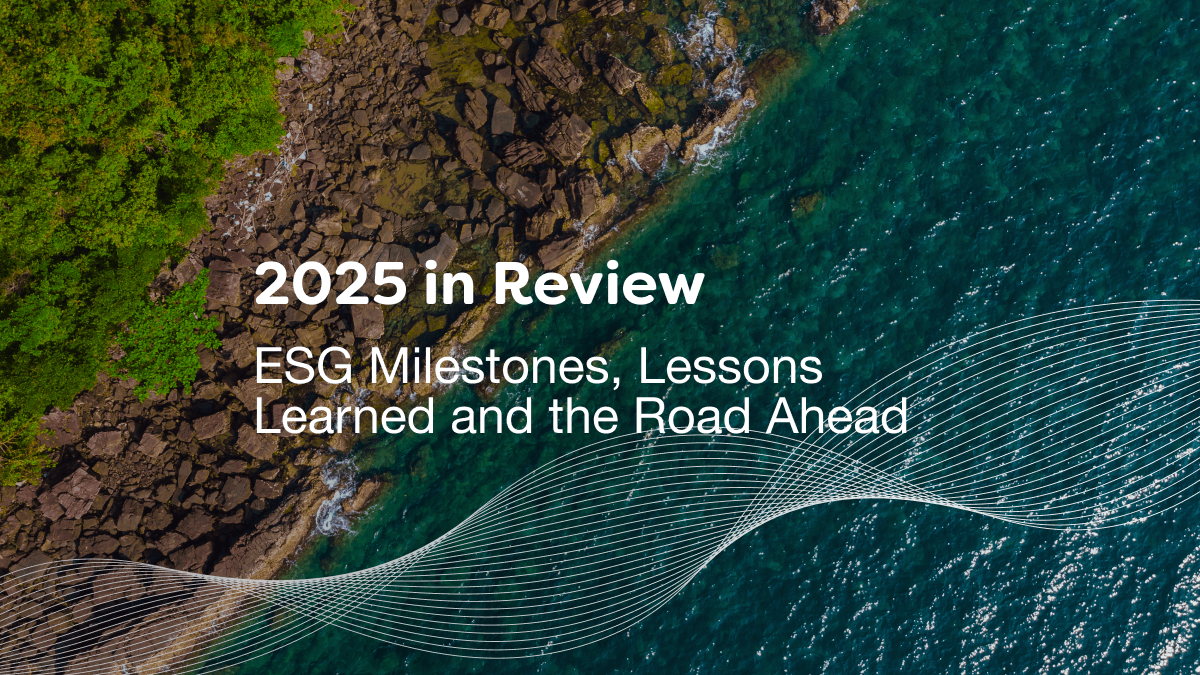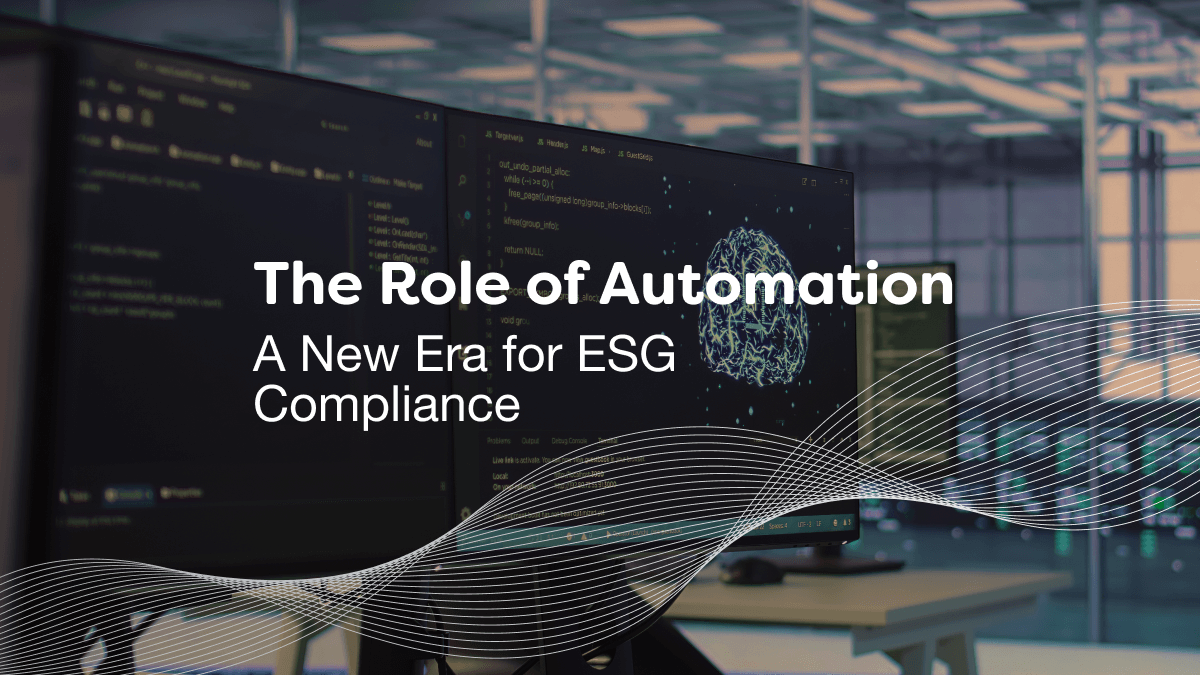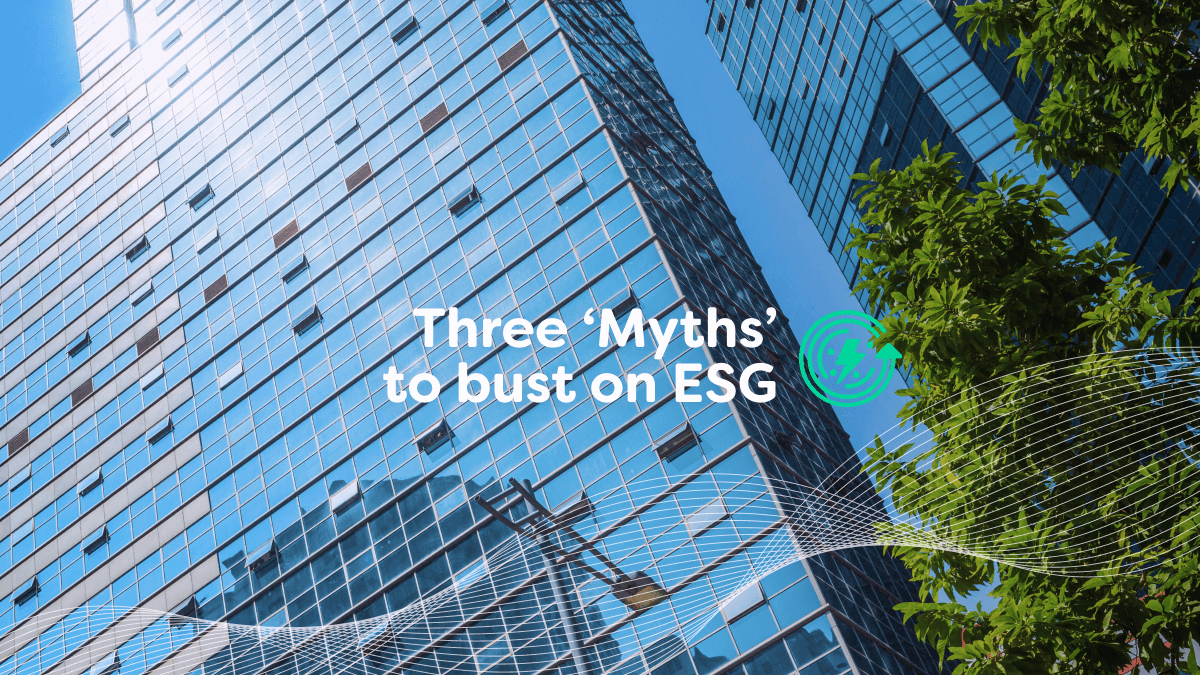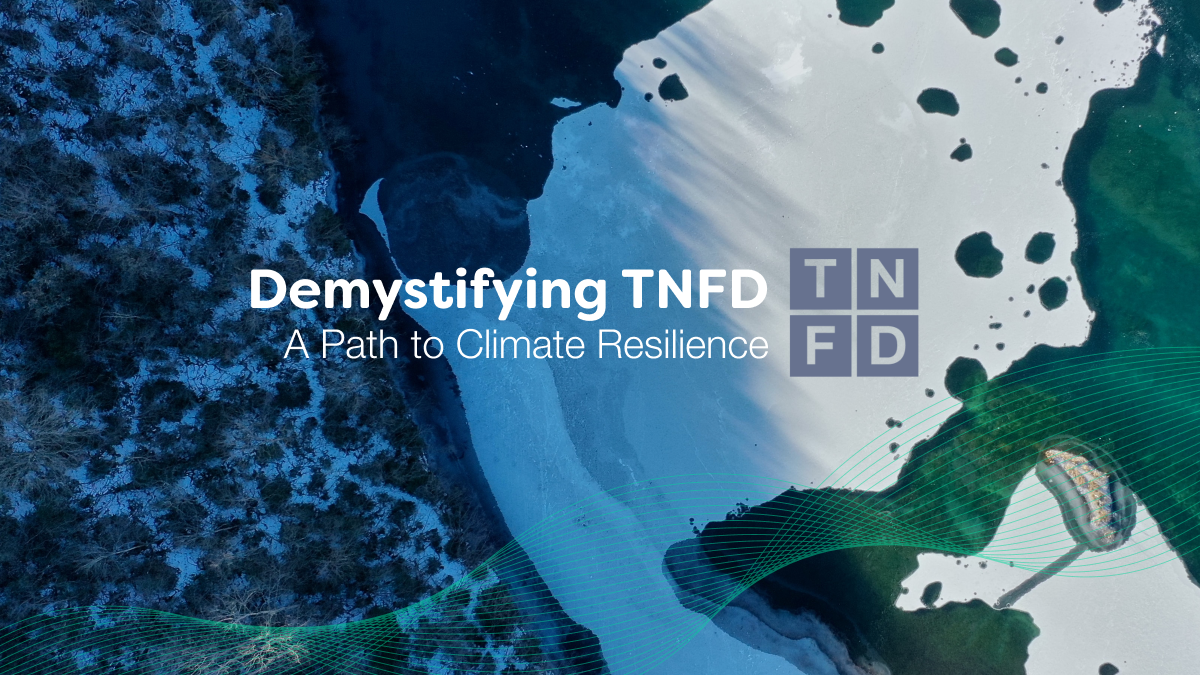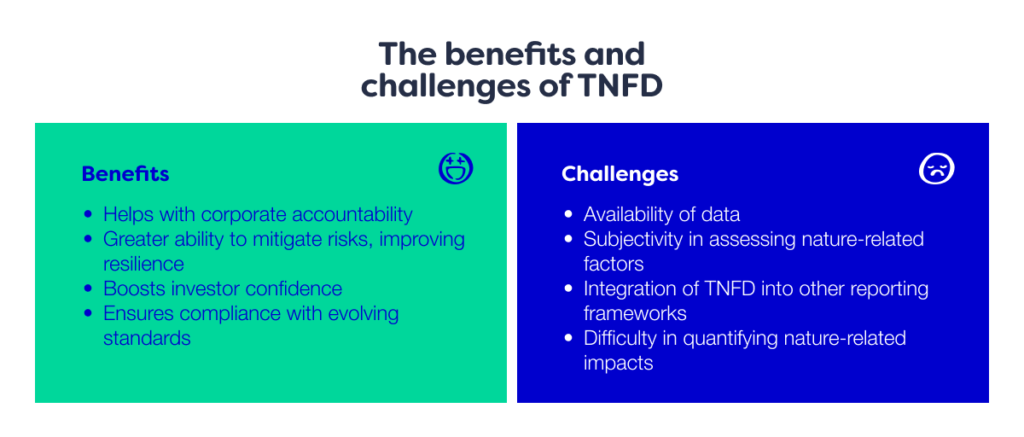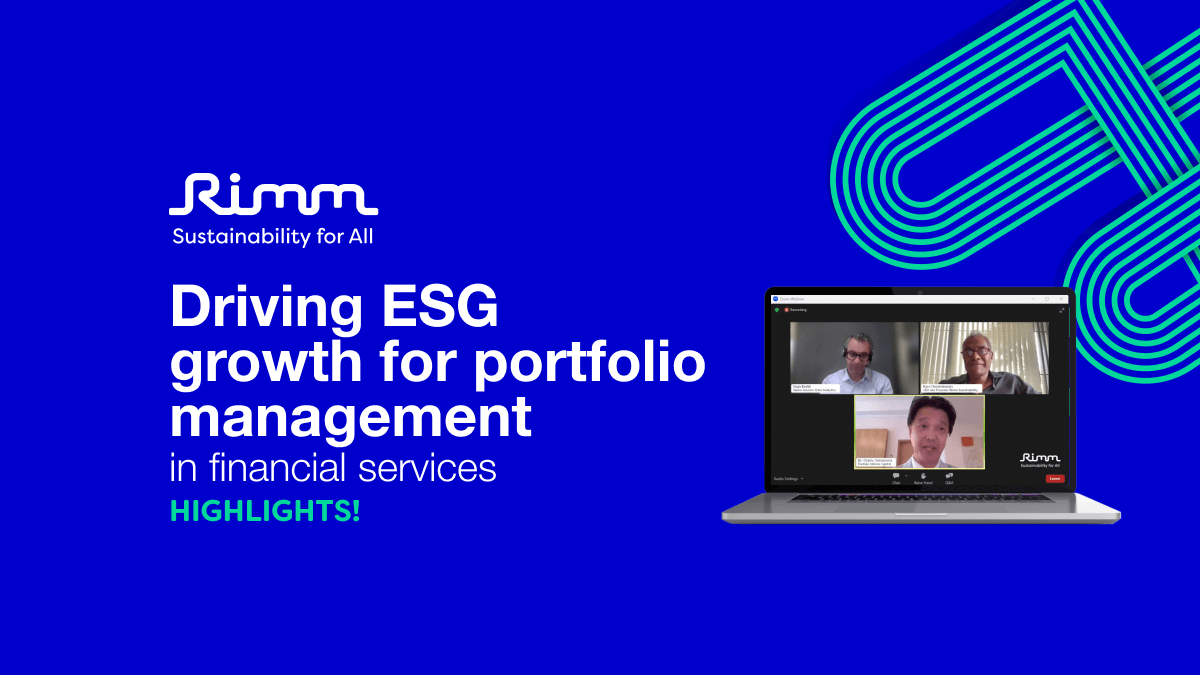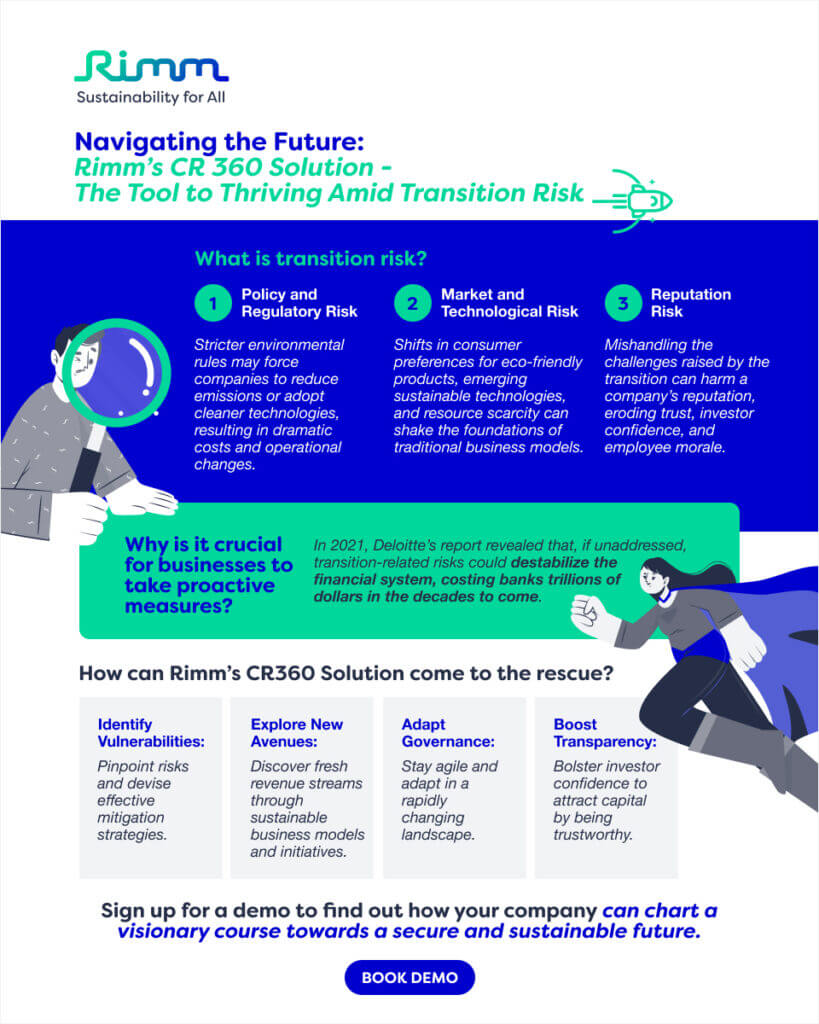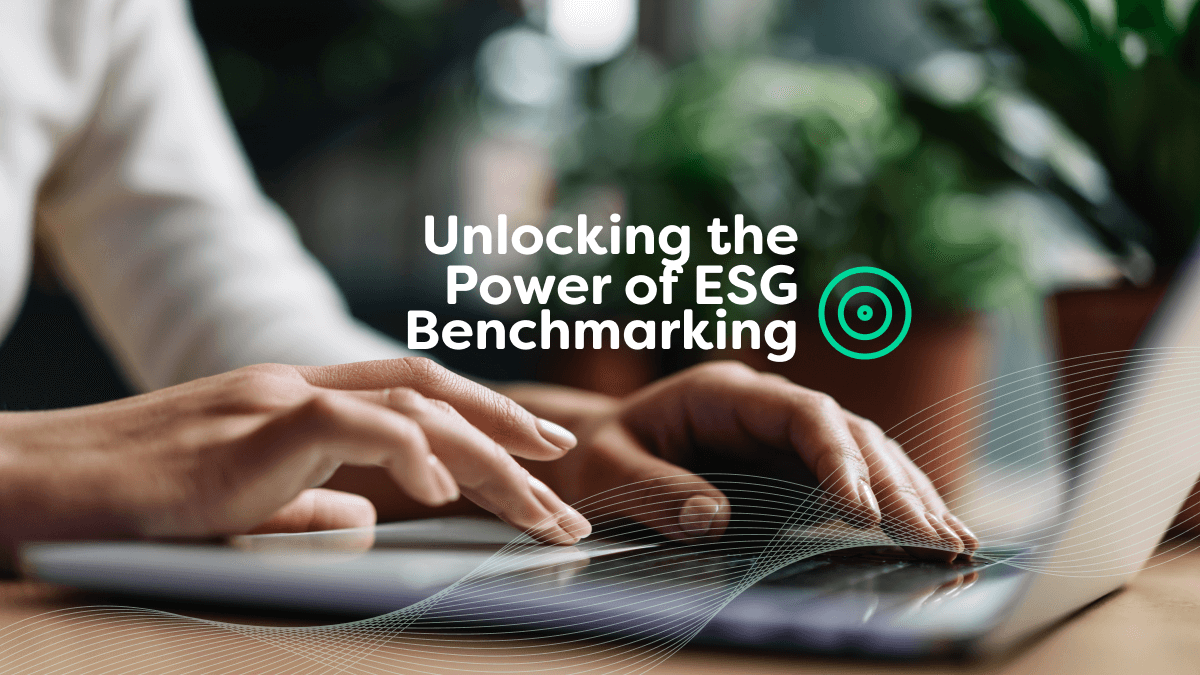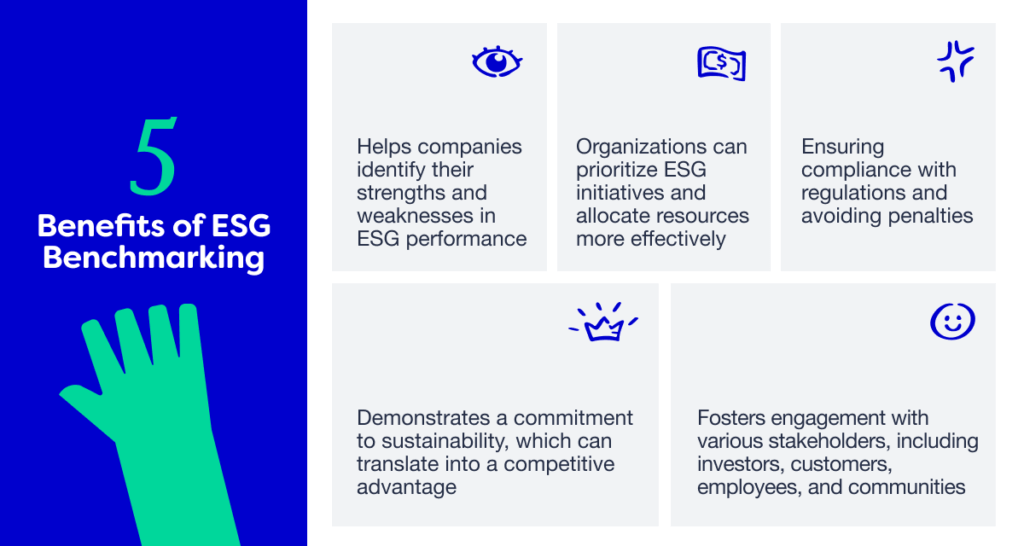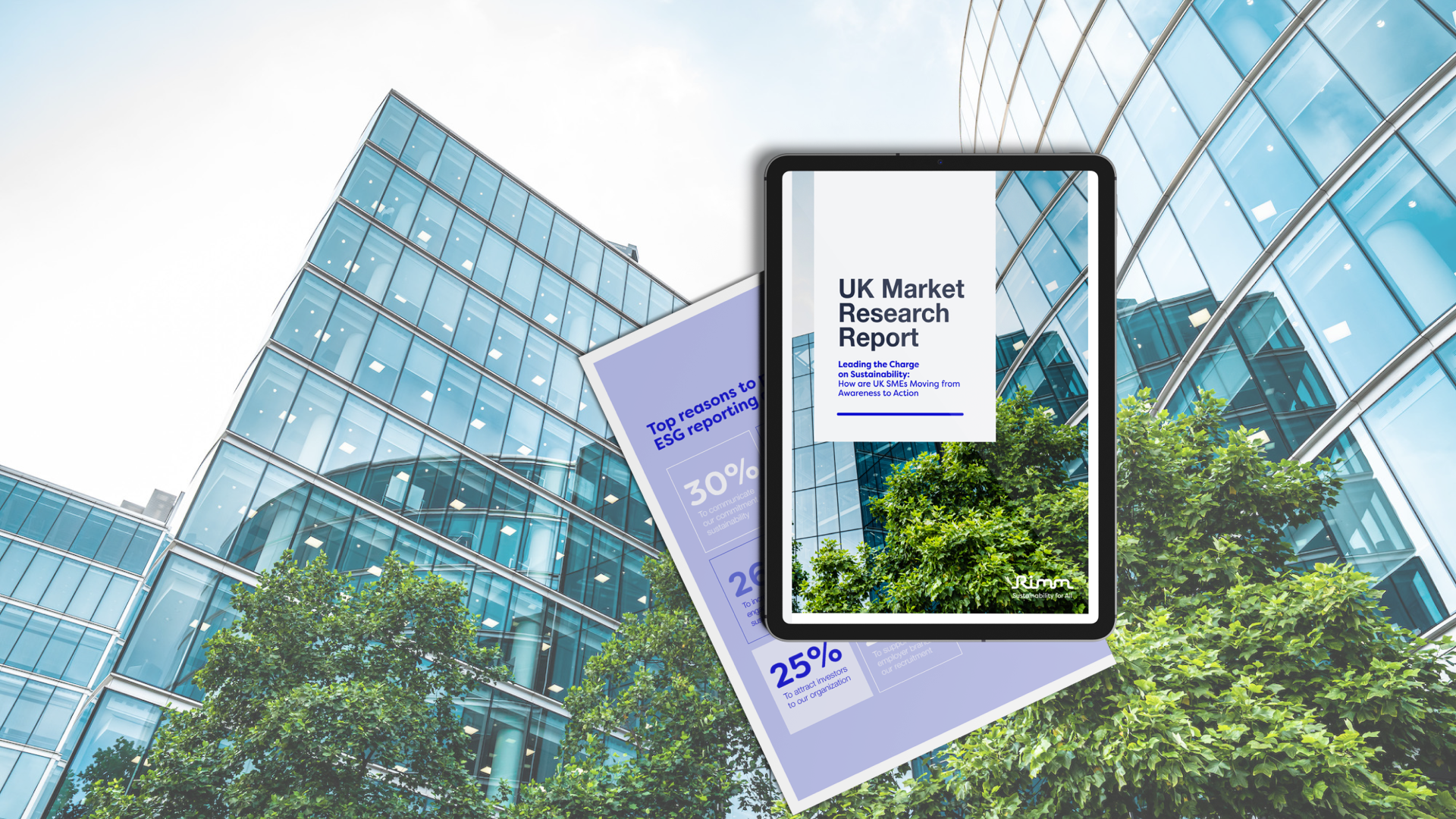In this blog, Rimm Sustainability’s ESG Strategy Advisor discusses 3 myths which she has come across during her professional career working with multiple leadership teams as they formulate their ESG strategy and integrate it into their core businesses.
Myth 1: ESG is an obsession within the corporate world
ESG is frequently referred to as if it is a stand-alone concept which is so unhelpful.
ESG encompasses everything you do in your business and how you do it. The all-important ESG ratings are simply a way of evaluating this, and consequently the company’s resilience and long-term investment potential.
- The ‘E’ represents your impact on the planet: your waste from manufacturing, your travel footprint. But also the impact of the planet on you, such as a drought that destroys the cocoa you need for your chocolate production.
- The ‘S’ refers to contribution to your community. Making sure that employees are paid a living wage and that fair taxes are paid. If your products contribute to social problems such as obesity, make sure you have a mitigation strategy.
- The ‘G’ refers to how you conduct yourself, for example being ethical when dealing with customers and suppliers. It is essential that the company has an effective Board of Directors to steer the company toward its goals.
Myth 2: ESG is all about managing risk
There are undoubtedly risks, such as:
- Risks associated with compliance:
-
-
- Standards for reporting are constantly evolving.
- Lenders may request data to demonstrate your investment potential.
- Prior to pitching for a new business, customers pre-screen your ESG data.
-
-
- Operational risks:
-
- Special taxes – for example sugar tax on fizzy drinks – can significantly impact profit margins.
- Needing data-based evidence base for marketing claims, like vegetarian burgers being better for the planet than beef burgers.
-
The relevant data is embedded throughout the enterprise, so it is difficult to obtain and then to understand. However, the art is in turning this on its head and looking for opportunities. The data can be used to identify ways to reduce waste and save money, such as heat and light consumption in offices and unnecessary travel. When you are proactive and diversify your supply chain to reduce flood risks before a crisis occurs, you will have an advantage over other companies in securing limited alternatives at acceptable prices. It may also be possible to obtain innovation funding from grants or green finance if you adapt your products early to evolving attitudes on carbon or health.
Myth 3: Just doing the ‘right thing’ is enough
It’s a start, but it’s not enough.
To support your claims, stakeholders demand transparency and data-based evidence. Don’t let that hard-to-find data go to waste. Act with it, track it, and share it. To bring the story to life, you will also need to provide supporting examples.
The ‘true’ perspective on materiality can only be gained by looking externally as well. Your customer ratings, press comment, and benchmarking yourself against your competitors are all important factors.
However, be wary of “greenwashing” when promoting your sustainability credentials. You must ensure you are transparent and that what you say is supported by the facts. A major US airline has just been sued for $1 billion because it did not live up to its carbon neutral claim. Make sure you are not caught out!
Listen to our podcast episode here, where our CEO and Founder, Ravi engages with Sue in an in-depth discussion on these myths and how companies can avoid falling into these traps.

Sue Bonney
Senior Advisor – ESG Strategy, Rimm Sustainability
With 40+ years of experience in sustainability and the former Vice Chair and Head of ESG at KPMG UK, Sue has a proven track record of leading successful initiatives that have transformed organizations into more responsible and sustainable entities. Her deep understanding of the complexities and opportunities within the ESG landscape will be instrumental in expanding Rimm Sustainability’s current service offering and ensuring that clients are well-equipped to navigate the evolving sustainability landscape.
Simplify Your Sustainability Performance & Tracking With myCSO
✅ Calculate your scope 1, 2 and 3 emissions instantly
✅ Gauge your company’s sustainability performance
✅ View your sustainability performance all from one dashboard
✅ Benchmark against industry peers
Enter your information below to book a demo with our team today.
